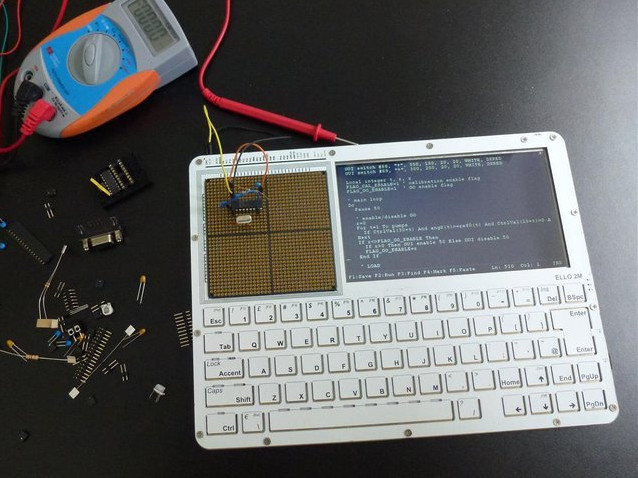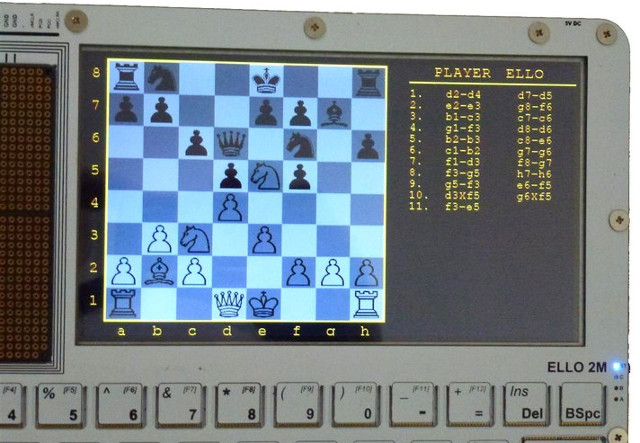The traditional way to play with electronics is to get a board (e.g. Arduino), a breadboard to wire components & sensors to the board, and a computer for programming. ELLO 2M combines all that into a single piece of hardware with a 7″ touchscreen display, a Microchip PIC32 micro-controller board, a solderless prototyping area made of PGA sockets, and a keyboard.
ELLO 2M hardware specifications:
- MCU – Microchip PIC32MX470 32-bit micro-controller @ 120 MHz with 128kB RAM (512kB RAM in the ELLO 2M “hacker” versions)
- Extra System Memory – Optional on-board serial non-volatile data RAM
- Storage – 3x micro-SD cards (one permanently built-in and two for removable storage); internal serial FRAM
- Display – 7″ LCD touch-screen panel with 800×480 pixel resolution
- Audio – Small speaker and buzzer
- Keyboard – Replaceable QWERTY keyboard
- Connectivity – 2.4GHz RF communication module with simple communication protocol
- Expansion – Expansion receptacle, electronic prototyping space with up to 1156 holes
- Misc – Real-time clock
- Battery – 4,500mAh battery for up to 12 hours of continuous operation (more in power-saving mode)
- Dimensions – six stacked circuit boards with 6.4mm total height without socket
ELLO 2M uses BASIC, which incidentally is the first programming language I first learned many years ago, but C language programming is also possible. More precisely ELLO runs MMBasic implementation released under a Creative Commons License. The project is also open source hardware with all design files released on github.
Konstantin Dimitrov, the project developer, has taken to CrowdSupply to raise funds for mass production. A $65 pledge will get you the six bare PCBs (shown in the video above), so that you can purchase and solder the components yourself, but most people may want an assembled version with price starting at $180 for Ello 2M Developer which does not include the prototyping area, and you’d need to pledge $240 to get Ello 2M Geek with the built-in prototyping board. You can also request your own custom keyboard panel-out for $550. Shipping is included in the prices, and delivery is scheduled for September 2016.
Via Liliputing and Geek

Jean-Luc started CNX Software in 2010 as a part-time endeavor, before quitting his job as a software engineering manager, and starting to write daily news, and reviews full time later in 2011.
Support CNX Software! Donate via cryptocurrencies, become a Patron on Patreon, or purchase goods on Amazon or Aliexpress






